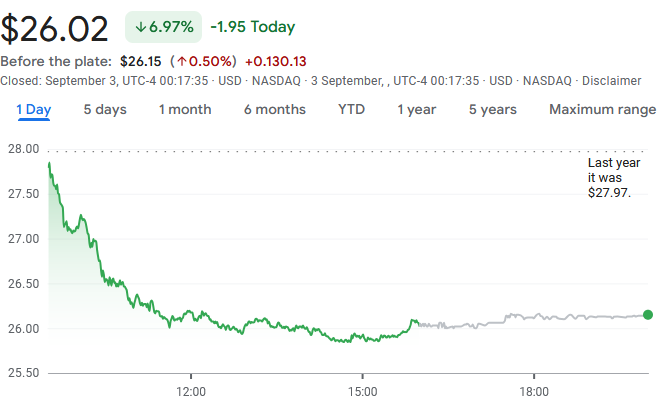Kraft Heinz Breakup: Can a Split Save the Buffett-Backed Giant?

TradingKey - On September 2, Kraft Heinz announced plans to split into two independent publicly traded entities to reshape its business landscape and unlock brand potential. This decision marks the end of the decade-old mega-merger between Kraft Foods and Heinz, orchestrated by Warren Buffett's Berkshire Hathaway and Brazilian firm 3G Capital.
Under the proposed split, the newly formed "North American Grocery Co." (provisional name) will focus on the North American market, encompassing well-known brands such as Oscar Mayer cold cuts, Kraft Singles cheese slices, and Lunchables portable meals for children.
The other entity, named the "Global Taste Elevation Co." (provisional name), will have a more international focus, with business centered on Heinz ketchup, Philadelphia cream cheese, and Kraft Mac & Cheese products.
Kraft Heinz expects the complex separation process to be completed in the second half of 2026. The specific names for the two new companies will be officially announced in the future.
Kraft Heinz executives believe that splitting into two separate entities will create higher value for investors. During their Tuesday morning announcement, they stated that after the split, they can dedicate specialized attention and resources to each business.
“Kraft Heinz’s brands are iconic and beloved, but the complexity of our current structure makes it challenging to allocate capital effectively, prioritize initiatives and drive scale in our most promising areas,” Kraft Heinz Executive Chair Miguel Patricio said. “By separating into two companies, we can allocate the right level of attention and resources to unlock the potential of each brand to drive better performance and the creation of long-term shareholder value.”
However, this breakup plan stands in stark contrast to the original rationale behind the Kraft-Heinz merger a decade ago. In 2015, under Berkshire Hathaway and 3G Capital's leadership, the two companies merged to form a global food giant with annual revenue exceeding $28 billion, featuring a vast brand portfolio ranging from Kool-Aid beverages to Velveeta cheese. The strategy at that time relied on aggressive management style and cost-cutting to improve efficiency.
But post-merger Kraft Heinz has faced persistent challenges, with aggressive cost-cutting leading to the gradual decline of many product lines, while the rise of grocery store private labels has intensified competitive pressures.
Capital market reaction has been particularly negative, with Kraft Heinz's stock having fallen nearly 70% since the 2015 merger—significantly underperforming the packaged food sector during the same period. Year-to-date, the company's shares have also declined by approximately 27%.
TD Cowen analyst Robert Moskow said food megamergers have had low success rates. Moskow said that the skills and investments required to prevail in different parts of the grocery store often vary, and that companies with narrower portfolios are more likely to be successful in the long run than diversified ones.
As the largest shareholder holding a 27.5% stake in Kraft Heinz, Berkshire Hathaway and its chairman Warren Buffett's stance has drawn significant attention. Buffett stated on Tuesday that the merger "wasn't a brilliant idea," but he doesn't believe splitting the company will solve its problems.
Regarding Berkshire's future as a Kraft Heinz investor, Buffett indicated that Berkshire's future stake strategy would depend entirely on what's best for the company. He specifically mentioned that if Berkshire considers selling its stake, it would not accept block bids unless other shareholders received identical offers.
Kraft Heinz's separation plan has raised uncertainties about future capital structure, with Moody's Ratings currently reviewing its investment-grade credit rating for a potential downgrade.
Moody's announced that it has placed Kraft Heinz's investment-grade credit ratings (Baa2 senior unsecured rating and Prime-2 commercial paper rating) under review for downgrade and changed the outlook for all relevant entity ratings from "stable" to "under review."
Moody's stated it will assess the pros and cons of the separation, acknowledging that while the split may bring higher business focus, it comes at a sensitive time when consumer spending is weakening.
The market reacted negatively to the separation plan, with Kraft Heinz shares falling nearly 7% following the announcement.

Source: Google Finance







